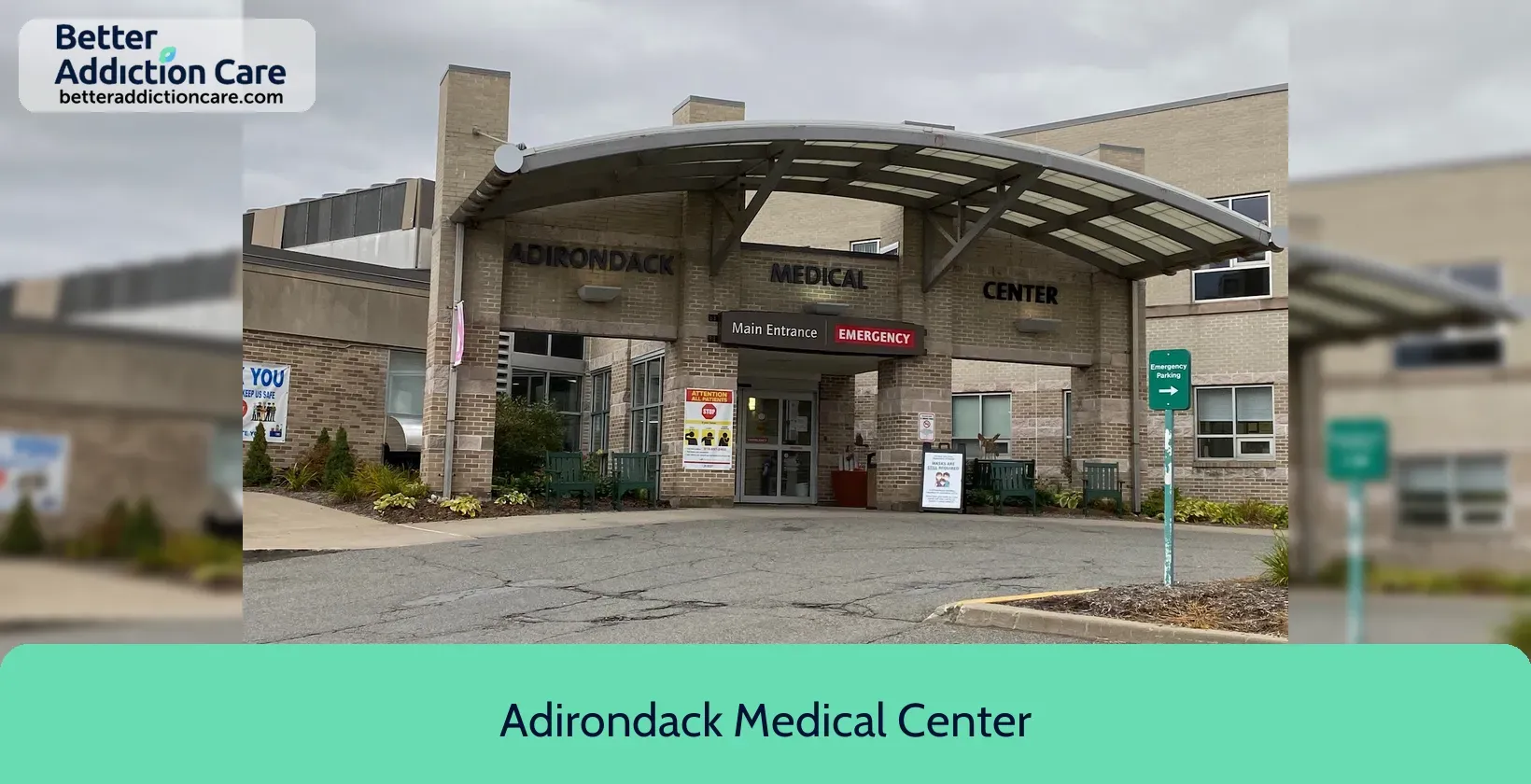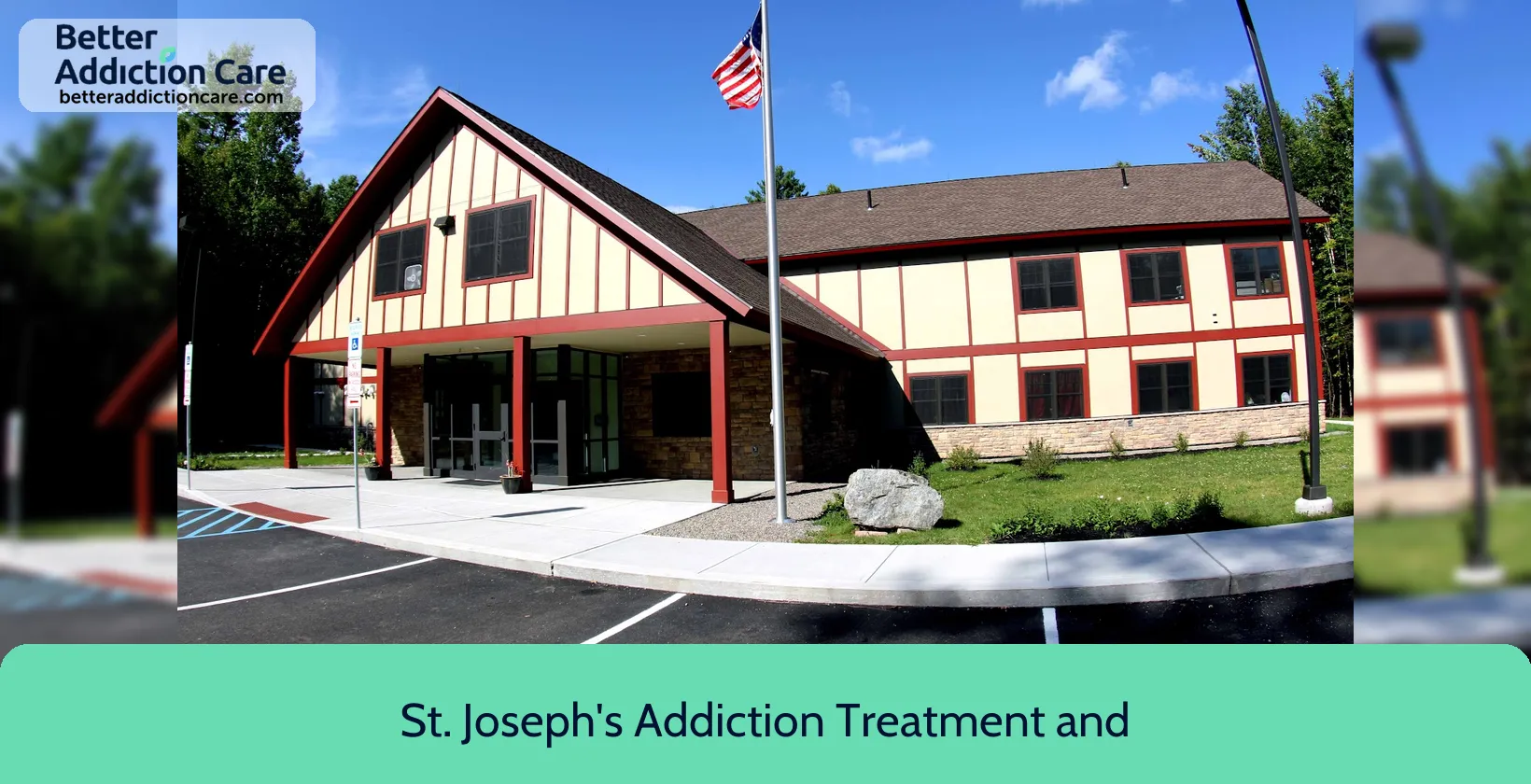St. Joseph's Addiction Treatment and Recovery Centers - Col. C. David Merkel - MD Veteran Residential Program
Overview
St. Joseph's Addiction Treatment and Recovery Centers - Col. C. David Merkel - MD Veteran Residential Program is a substance abuse treatment center for people seeking treatment near Franklin County. As part of their treatment modalities for recovery, St. Joseph's Addiction Treatment and Recovery Centers - Col. C. David Merkel - MD Veteran Residential Program provides smoking/vaping/tobacco cessation counseling, treatment for gambling disorder, and group counseling during treatment. St. Joseph's Addiction Treatment and Recovery Centers - Col. C. David Merkel - MD Veteran Residential Program is located in Saranac Lake, New York, accepting cash or self-payment for treatment.
St. Joseph's Addiction Treatment and Recovery Centers - Col. C. David Merkel - MD Veteran Residential Program at a Glance
Payment Options
- Cash or self-payment
- Medicaid
- Private health insurance
- Federal, or any government funding for substance use treatment programs
Assessments
- Screening for tobacco use
- Comprehensive mental health assessment
- Comprehensive substance use assessment
- Outreach to persons in the community
- Screening for mental disorders
Age Groups
- Young adults
- Adults
Ancillary Services
- Case management service
- Domestic violence services, including family or partner
- Early intervention for HIV
- Mental health services
- Social skills development
Highlights About St. Joseph's Addiction Treatment and Recovery Centers - Col. C. David Merkel - MD Veteran Residential Program
7.25/10
With an overall rating of 7.25/10, this facility has following balanced range of services. Alcohol Rehabilitation: 8.00/10, Drug Rehab and Detox: 8.15/10, Insurance and Payments: 6.00/10, Treatment Options: 6.85/10.-
Drug Rehab and Detox 8.15
-
Alcohol Rehabilitation 8.00
-
Treatment Options 6.85
-
Insurance and Payments 6.00
Accreditations
State department of health:

Government agencies issue State Licenses, which grant rehabilitation organizations permission to conduct their operations lawfully within specific geographic regions. Licenses needed to operate are typically determined by the type of rehabilitation program offered by the facility and its physical location.
Commission on Accreditation of Rehabilitation Facilities (CARF):

CARF accreditation is a prestigious recognition for rehabilitation and human service organizations. It signifies that an organization meets high-quality standards and is committed to providing top-level care. CARF conducts rigorous evaluations to ensure compliance, enhancing an organization's credibility and reassuring clients and funders of exceptional service quality. This accreditation promotes excellence and continual improvement in the rehabilitation and human services field.
Drug Enforcement Agency (DEA):
DEA accreditation refers to the process by which a law enforcement agency is recognized by the Drug Enforcement Agency (DEA) as having met specific training, operational, and resource requirements necessary to participate in DEA-led drug enforcement efforts. This accreditation allows the agency to perform DEA-related tasks such as conducting investigations, executing federal search warrants, and participating in joint task forces.
Treatment At St. Joseph's Addiction Treatment and Recovery Centers - Col. C. David Merkel - MD Veteran Residential Program
Treatment Conditions
- Alcoholism
- Mental health treatment
- Substance use treatment
- Co-occurring Disorders
Care Levels
- Hospital inpatient treatment
- Short-term residential
- Long-term residential
- Residential detoxification
- Aftercare
Treatment Modalities
- Smoking/vaping/tobacco cessation counseling
- Treatment for gambling disorder
- Group counseling
- Family counseling
- Marital/couples counseling
Ancillary Services
Additional Services
- Pharmacotherapies administered during treatment
- Mentoring/peer support
- Breathalyzer or blood alcohol testing
Special Programs
- Clients with co-occurring mental and substance use disorders
- Veterans
- Active duty military
- Members of military families
- Clients with HIV or AIDS
Get Help Now
Common Questions About St. Joseph's Addiction Treatment and Recovery Centers - Col. C. David Merkel - MD Veteran Residential Program
Contact Information
Other Facilities in Saranac Lake

7.55

6.65

7.51
DISCLAIMER: The facility name, logo and brand are the property and registered trademarks of St. Joseph's Addiction Treatment and Recovery Centers, and are being used for identification and informational purposes only. Use of these names, logos and brands shall not imply endorsement. BetterAddictionCare.com is not affiliated with or sponsored by St. Joseph's Addiction Treatment and Recovery Centers.

